Related Research Articles
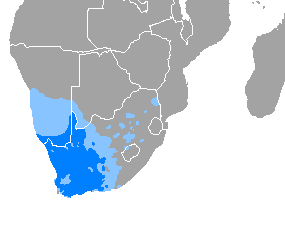
Afrikaans is a West Germanic language that evolved in the Dutch Cape Colony from the Dutch vernacular of Holland proper used by Dutch, French, and German settlers and people enslaved by them. Afrikaans gradually began to develop distinguishing characteristics during the course of the 18th century. Now spoken in South Africa, Namibia and Botswana, Zambia and Zimbabwe, estimates c. 2010 of the total number of Afrikaans speakers range between 15 and 23 million. Most linguists consider Afrikaans to be a partly creole language.
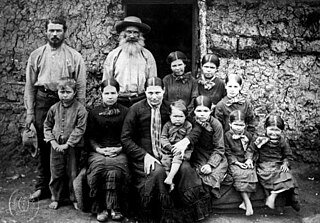
Boers ) are the descendants of the proto Afrikaans-speaking Free Burghers of the eastern Cape frontier in Southern Africa during the 17th, 18th, and 19th centuries. From 1652 to 1795, the Dutch East India Company controlled Dutch Cape Colony, but the United Kingdom incorporated it into the British Empire in 1806. The name of the group is derived from Trekboer then later "boer", which means "farmer" in Dutch and Afrikaans.
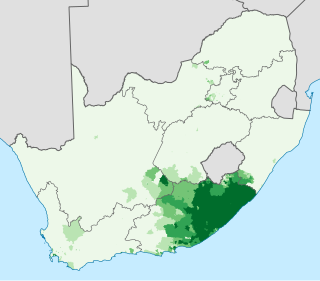
Xhosa, formerly spelled Xosa and also known by its local name isiXhosa, is a Nguni language and one of the official languages of South Africa and Zimbabwe. Xhosa is spoken as a first language by approximately 10 million people and as a second language by another 10 million, mostly in South Africa, particularly in Eastern Cape, Western Cape, Northern Cape and Gauteng, and also in parts of Zimbabwe and Lesotho. It has perhaps the heaviest functional load of click consonants in a Bantu language, with one count finding that 10% of basic vocabulary items contained a click.
The Nguni languages are a group of closely related Bantu languages spoken in southern Africa by the Nguni people. Nguni languages include Xhosa, Hlubi, Zulu, Ndebele, and Swati. The appellation "Nguni" derives from the Nguni cattle type. Ngoni is an older, or a shifted, variant.

Ciskei, officially the Republic of Ciskei, was a Bantustan for the Xhosa people, located in the southeast of South Africa. It covered an area of 7,700 square kilometres (3,000 sq mi), almost entirely surrounded by what was then the Cape Province, and possessed a small coastline along the shore of the Indian Ocean.
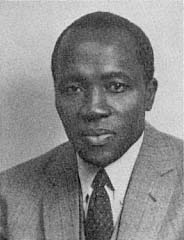
Archibald Campbell Mzolisa "A.C." Jordan was a novelist, literary historian and intellectual pioneer of African studies in South Africa.
Phuthi (Síphùthì) is a Nguni Bantu language spoken in southern Lesotho and areas in South Africa adjacent to the same border. The closest substantial living relative of Phuthi is Swati, spoken in Eswatini and the Mpumalanga province of South Africa. Although there is no contemporary sociocultural or political contact, Phuthi is linguistically part of a historic dialect continuum with Swati. Phuthi is heavily influenced by the surrounding Sesotho and Xhosa languages, but retains a distinct core of lexicon and grammar not found in either Xhosa or Sesotho, and found only partly in Swati to the north.
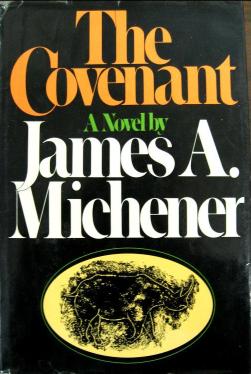
The Covenant is a historical novel by American author James A. Michener, published in 1980.
Zakes Mda, legally Zanemvula Kizito Gatyeni Mda is a South African novelist, poet and playwright and he is the son of politician A. P. Mda. He has won major South African and British literary awards for his novels and plays.
The University of Transkei was a university in Umtata in the former bantustan of Transkei in South Africa. It was founded in 1976 as a branch of the University of Fort Hare and after the Transkei gained nominal independence in 1977, it became the University of Transkei. On 1 July 2005, the university merged with Border Technikon and Eastern Cape Technikon to become the Walter Sisulu University, named after anti-apartheid activist Walter Sisulu.
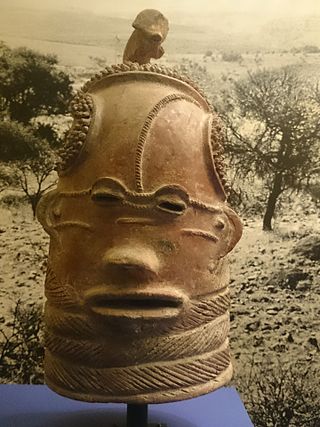
South African Bantu-speaking peoples represent the overwhelming majority ethno-racial group of South Africans. Occasionally grouped as Bantu, the term itself is derived from the English word "people", common to many of the Bantu languages. The Oxford Dictionary of South African English describes "Bantu", when used in a contemporary usage and or racial context as "obsolescent and offensive", because of its strong association with the "white minority rule" with their apartheid system, however, Bantu is used without pejorative connotations in other parts of Africa and is still used in South Africa as the group term for the language family.

South African literature is the literature of South Africa, which has 11 national languages: Afrikaans, English, Zulu, Xhosa, Sotho, Pedi, Tswana, Venda, Swazi, Tsonga and Ndebele.
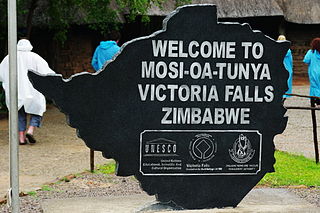
Many languages are spoken, or historically have been spoken, in Zimbabwe. Since the adoption of its 2013 Constitution, Zimbabwe has 16 official languages, namely Chewa, Chibarwe, English, Kalanga, Koisan, Nambya, Ndau, Ndebele, Shona, The country's main languages are Shona, spoken by over 82% of the population, and Ndebele, spoken by roughly 15%. English is the country's lingua franca, used in government and business and as the main medium of instruction in schools. English is the first language of most white Zimbabweans, and is the second language of a majority of black Zimbabweans. Historically, a minority of white Zimbabweans spoke Afrikaans, Greek, Italian, Polish, and Portuguese, among other languages, while Gujarati and Hindi could be found amongst the country's Indian population. Deaf Zimbabweans commonly use one of several varieties of Zimbabwean Sign Language, with some using American Sign Language. Zimbabwean language data is based on estimates, as Zimbabwe has never conducted a census that enumerated people by language.

The Xhosa people, or Xhosa-speaking people are a Bantu ethnic group whose traditional homeland is primarily the Cape Provinces of South Africa. They are the second largest ethnic group in Southern Africa and are native speakers of the IsiXhosa language.
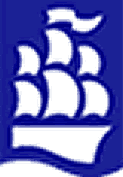
The Maskew Miller Longman Literature Awards were established in c.1980 by Maskew Miller Longman, an educational publishing company in South Africa. The competition was created to encourage writing in all of South Africa's 11 official languages, with a particular focus on literature suitable for a youth audience.

This article focuses on the history of 19th century Xhosa language newspapers in South Africa.
Pinelands High School is a public English medium co-educational high school situated in Forest Drive, Pinelands in the city of Cape Town in the Western Cape province of South Africa. It was opened in July 1952 and the founding principal was Jack Kent. The school now enrolls approximately 980 students.

Temba Maqubela is a South African educator and administrator. In July 2013 he began as the eighth Headmaster at The Groton School. He previously served as the Dean of Faculty and Assistant Head for Academics at Phillips Academy, Andover. He served as director of (MS)2, a program that addresses math and science needs for African American, Latino, and Native American high school students. Over the course of his 26-year tenure at Phillips Academy, Maqubela served as a member of the advisory committee, as Chair of the Chemistry department, and as a chemistry teacher. Maqubela launched the ACE Scholars Program, which tackles the preparation gap among gifted students, and took the lead on Andover's Global Perspectives Group, which focuses on global education for students and faculty.
Randell Langa Peteni was a Xhosa South African novelist and academic, and author of the novel Hill of Fools, which was adapted for television by the SABC. The novel was Peteni's only novel.

Isityumzi mlomomde is fossil lungfish described from fragmentary remains including one complete parasphenoid, tooth plates fragments and scales from the Late Devonian Sarcopterygians. It represents the only record of Late Devonian lungfish remains from western Gondwana.